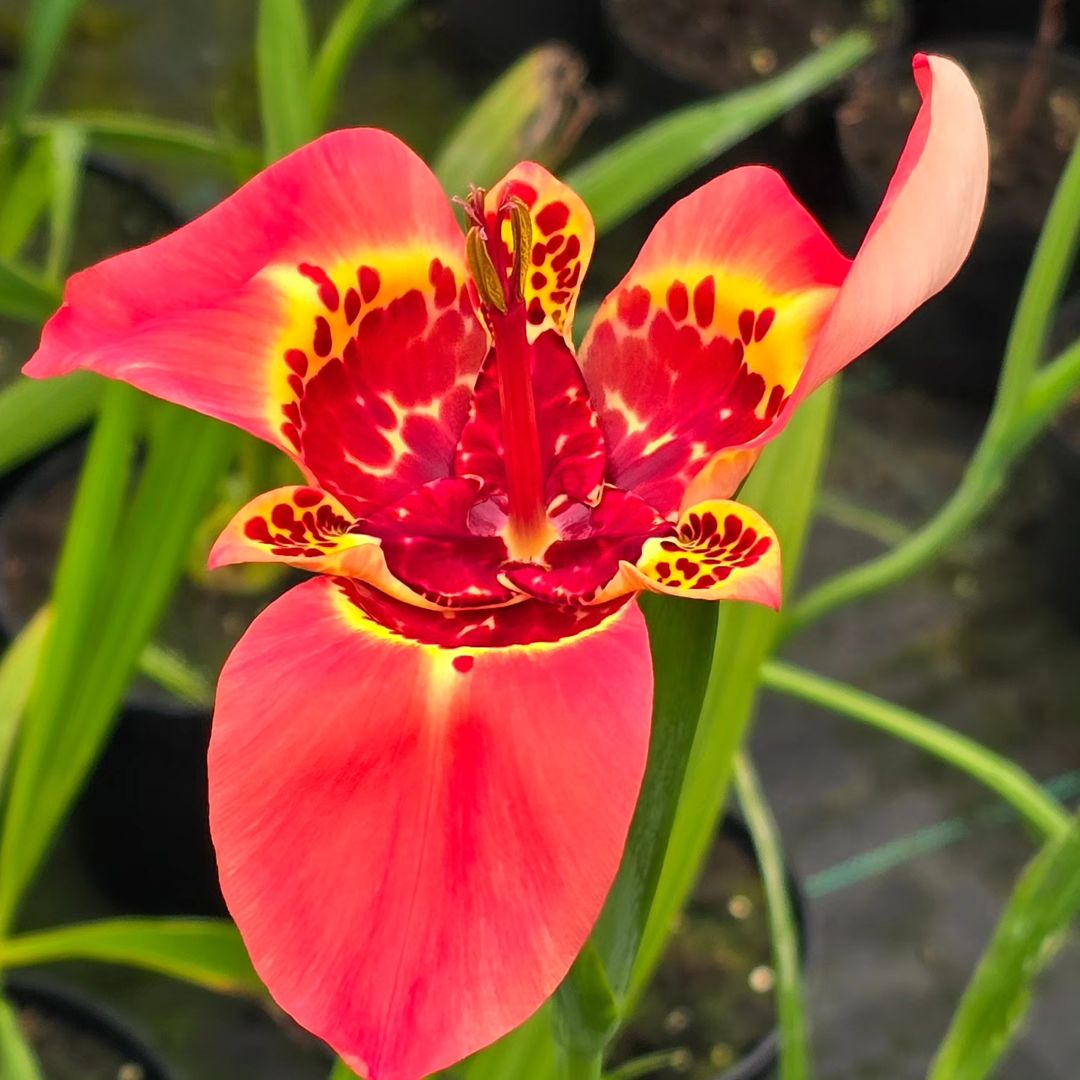Discover the vibrant Tiger Flower: learn about its unique features, care tips and cultural significance. Perfect for gardeners and flower enthusiasts looking to add a touch of exotic beauty to their landscapes.
Have you ever seen a flower that looks like it’s wearing tiger stripes? Meet the Tiger flowers, also known as the Mexican shellflower or Tigridia. This eye-catching plant brings a burst of color and exotic charm to any garden. In this article, we’ll explore everything you need to know about these unique blooms.
Here’s an information chart for Tiger Flower:
CategoryInformationBotanical NameTigridia pavoniaCommon NameTiger Flower, Peacock FlowerPlant TypeBulbous perennialHardiness ZoneZones 8-10Sun ExposureFull sunSoil TypeWell-draining, fertileWateringModerateGrowth HabitUpright, clumpingHeight/Spread1-2 feet tall, spreads 6-12 inchesSpecial FeaturesShowy, tiger-like patterned flowers in various colors, blooms in summer, attracts hummingbirds
What is a Tiger Flower?

The Tiger flower gets its name from its distinctive markings that resemble a tiger’s stripes. These flowers belong to the Iridaceae family, which includes irises and gladioli. Native to Mexico and parts of Central America, Tiger flowers have become popular worldwide for their striking appearance.
Key Features
- Large, triangular petals
- Bright colors with contrasting spots or stripes
- Blooms that last only one day, but plants produce many flowers over time
Growing Tiger Flowers
If you’re thinking about adding Tiger flowers to your garden, here’s what you need to know:
Planting:
- Best time to plant: Spring, after the last frost
- **Soil type: **Well-draining, rich soil
- Sunlight: Full sun to partial shade
Care:
- **Watering: **Keep soil moist but not waterlogged
- **Fertilizer: **Apply a balanced fertilizer monthly during growing season
- **Winter care: **In colder areas, dig up bulbs and store indoors
Pest and Disease Management:
- Watch out for: Aphids, slugs and snails
- **Common diseases: **Bulb rot in overly wet conditions
For more detailed planting instructions, the University of Illinois Extension offers a comprehensive guide.
Popular Tiger Flower Varieties
Tigridia pavonia (Peacock Tiger Flower):
- The most common variety
- Colors range from red and orange to yellow and white
Tigridia vanhouttei:
- Smaller flowers with more delicate markings
- Often pink or light purple in color
Tigridia orthantha:
- Rare species with bright red flowers
- Native to Guatemala
Cultural Significance
Tiger flowers have played a role in various cultures:
- **Aztec cuisine: **The bulbs were eaten as a food source
- **Traditional medicine: **Used in some Mexican folk remedies
- **Modern gardening: **Prized for their unique appearance in ornamental gardens
To learn more about the cultural uses of Tiger flowers, the Economic Botany journal provides an in-depth look at their historical significance.
Tips for Enjoying Tiger Flowers
- Photography Capture the beauty of these short-lived blooms with these tips:
- Use macro mode for close-up shots
- Photograph in early morning or late afternoon for best light
- Try different angles to showcase the intricate patterns
- Cut Flowers While they don’t last long, Tiger flowers can make stunning temporary displays:
- Cut stems early in the morning
- Place in cool water immediately
- Enjoy their brief but spectacular show
- Companion Planting Pair Tiger flowers with these plants for a beautiful garden display:
- Ornamental grasses
- Dahlias
- Zinnias
For more ideas on companion planting, the Colorado State University Extension offers valuable insights.
Tiger flowers are a unique and captivating addition to any garden. With their striking patterns and vibrant colors, they’re sure to become a talking point among visitors. While they require some specific care, the reward of their beautiful blooms is well worth the effort. Whether you’re an experienced gardener or just starting out, consider adding these exotic flowers to your outdoor space for a touch of tiger-striped magic.
Remember, gardening is an ongoing learning experience. Don’t be afraid to experiment and enjoy the process of watching your Tiger flowers grow and bloom!
For more gardening tips and plant care guides, visit usagardenhub.com.

